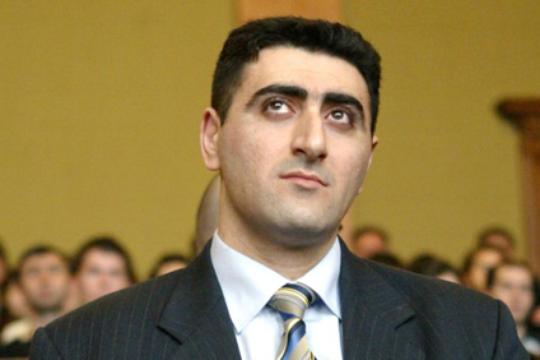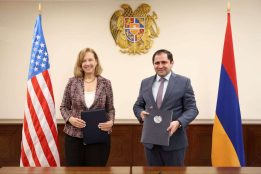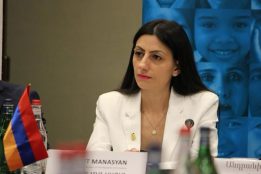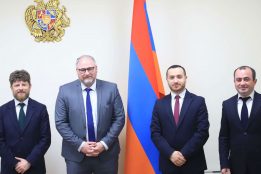
As fall approaches, the newspapers and magazines remind me of my civic duties and encourage me to keep on murdering the killer-snails. They tell me it is the right thing to do. It is important to cooperate in order to protect our cultivations. Take the fight, form a kind of citizen guards group.
I am afraid to say that I am not qualified as an animal lover. I’d rather keep a respectable distance between me and animals. In that respect, I am just like one of them: They are threatening and scary. So am I.
Coming back to the killer-snails, I must admit that I have never seen the damage they cause. I have only read about these ferocious killers. So I trust the papers and the experts and the victims’ stories. The verdict is unanimous: Kill them all. Have no mercy. Be clinical. Use your hand pruners. (For those who are not familiar with gardening, these are a type of scissor used for plants. They are strong enough to prune hard branches of trees and shrubs, sometimes up to two centimeters thick.) I don’t own any secateurs, so instead I use the sole of my shoe and tramp these ugly creatures to death, encouraged by the incitement to destroy every killer-snail I see.
The killer-snails do have a common, neutral name; they are called Spanish snails. But of course, it is much easier to justify their destruction, when done in the name of self-defense (against “killers”) and in a battle against evil. The snails are described as invading hordes that reproduce in huge numbers and thereafter destroy our culture. They should be here—they should not have migrated here—in the first place.
Killer-snails have different needs than humans. They seem to have a single interest, their inner life is less rich. Can they feel pain and do they feel fear? These are questions that are of course critical to our operational attitudes. Or maybe not. After all, most of the animals we have systematically killed do feel pain and fear.
But wait a second, is it really good, or rather appropriate, that I crush these snails with my shoes and kill them? It is an uninformed, mechanical response to what the magazines are instructing me to do. But that is a bad answer. Yet to claim that media is responsible for inciting violence and encouraging murder and brutality also seems unconvincing.
Why have I brought this up? I believe that whether the subject of hatred is a snail or another human being, when we are encouraged to get brutal and commit a crime, the same nerve cells and neural pathways in our brains are activated. Why should we worry? We must remember the German poet Heinrich Heine’s words: Where people burns books eventually they start burn people too. Books were burned because they, too, were considered to cause damage.
After all this is what is happening in Azerbaijan, where they’ve made a hero out of the axe- murderer, Safarov. The frenzy and euphoria surrounding the murderer is beyond human comprehension. I can hear the Azeri media calling for the crushing of the “snails”—even using an axe when necessary.
Azeri society, our neighbors, are being poisoned every day, nurtured with slogans that define the Armenian as the enemy. And like the snails, Armenians are being described as invading hordes who are there to destroy their culture, and who should not have been there—migrated there—in the first place.
The emotional and verbal aggression directed towards Armenians is so significant that one needs to ponder about its consequences.
Where does this hatred come from? What it is an expression of? Could it be just relief? That this way, the Azeris live out their hatred unrestrained and unpunished against those Armenians who are “destroying the Azeri social order”?
Or could it be the expression of what J.M. Coetzee’s fictional figure suggests in “Animal Life” (New Doxa, 2001)—that man despises slaughter-cattle because they allow themselves to be treated as such, as slaughter animals.
Once upon a time, we waged a war against nature and animals. It was only after man’s absolute victory that we came to cultivate compassion. However, there are still animals that we hate. Rats, for example. But rats have not surrendered. They fight back. The rats will not go away, and they will certainly not lose, either. Not to mention insects and microbes. They will still beat us.
Nor will killer-snails step aside.
Human beings have a master race mentality towards other species. So if we went in to annihilate the killer snails, by closing our gardens, and fencing and using chemicals, we would soon be disappointed. We would be furious because these animals are not grateful and that they do not behave like people. And we would hate them even more.
The master mentality, however, is two-sided. It can manifest itself as compulsory humility, as well. Yet we all know that humility is sometimes just well-thought-out superiority.
In between, there is a third state: equality. Equality does not mean to love everyone, to love people you do not know or care about. In the long run, however, it requires reciprocal respect in order not to turn into something perverse and self-effacing. Killer-snails ignore equality both as a mental attitude and in practice. People, too, ignore equality.
When we try to understand why we are not encouraging each other to put aside the axe and refrain from using it against those who are seen as damaging, the answer is far from obvious.
Today Armenians are perceived as destructive hordes who are ruining Azeri existence. But what should they do with these “destructive hordes”? Keep them in a reserve, in a high-security state prison? Murder them all?
Humans act like killer-snails, too, eating dead or weaker individuals of the species. Yet, one must remember to resist against what we perceive as a threat and refrain from behaving like Coetzee’s submissive slaughter sheep.
Suzanne Khardalian is a documentary filmmaker based in Stockholm, Sweden. Her films include “Back to Ararat,” “I Hate Dogs,” and “Grandma’s Tattoos.” She contributes regularly to Armenian-language newspapers




































